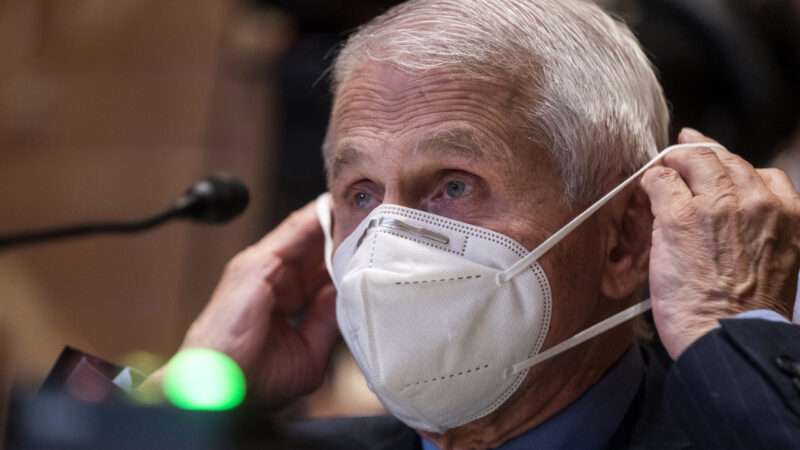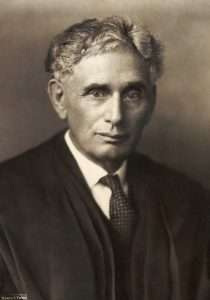
A friend of mine and his wife recently took a trip to Europe that almost ended in disaster because of positive COVID-19 tests. Fortunately, the results weren’t theirs; four other members of their tour group who stood in line at the same pharmacy to get swabbed received the unwelcome results and remained stranded at their own expense while my friend and the rest of the group returned home. It was a reminder that some officials still have trouble letting go of pandemic-inflated power.
“All air passengers 2 years or older with a flight departing to the US from a foreign country at or after 12:01am EST (5:01am GMT) on December 6, 2021, are required show a negative COVID-19 viral test result taken no more than 1 day before travel, or documentation of having recovered from COVID-19 in the past 90 days, before they board their flight,” according to the U.S. Centers for Disease Control and Prevention.
Applying even to vaccinated and boosted travelers, and with a daunting 24-hour timeframe, the CDC rules make the U.S. an outlier in a world that otherwise seems eager to turn its back on two years of chaotic overreactions to COVID-19. Even Italy, where just months ago people rioted against draconian requirements that they show proof of vaccination to work, shop, and play, dropped its Green Pass within its borders in May and for entry to the country last week. But America’s rules linger on and cost people time and money.
“Travel agents and travel insurance companies say they are hearing more tales of travelers stuck abroad due to the U.S. government’s rule that people produce a negative test to enter the country by air,” The Wall Street Journal reported last week. “Vacationers and business travelers testing positive face pricey extended stays and rebooked flights, confusion over which quarantine rules reign and a near daily scramble to test negative or get a doctor’s note vouching for recovery from Covid.”
“For Americans traveling internationally, a positive COVID-19 test before returning home can result in thousands of dollars in additional costs for extending hotel stays and rebooking flights,” adds Healthline.
Asked in May if the federal government had any plans to eliminate testing requirements for entering the country, then-White House Press Secretary Jen Psaki said she was “not aware of a timeline for that.”
Thousands of dollars in unanticipated costs and uncertain return dates threaten to make travel a luxury once again, accessible only by those with time and money to burn. That’s an unpleasant turnaround just a few years after people marveled at how affordable air travel had become in the decades since deregulation. Unfortunately, residual pandemic policy doesn’t stop there.
“More than two years after the COVID-19 outbreak forced school officials to shift classes and assignments online, teens continue to navigate the pandemic’s impact on their education and relationships, even while they experience glimpses of normalcy as they return to the classroom,” Pew Research Center noted last week. And costs for these kids aren’t measured in dollars or vacation days.
“From declining test scores to widening achievement gaps, teachers, parents and advocates have raised concerns about the negative impact the pandemic may have had on students. Beyond academic woes, experts also warn that these disruptions could have lingering effects on young people’s mental and emotional well-being,” Pew added.
Researchers find that children suffered “significant anxiety and depression during the coronavirus disease 2019 pandemic,” according to a May 2021 article in Pediatric Clinics of North America. “Social isolation, loneliness, lack of physical exercise, and family stress may contribute to these problems.”
Battles over closures, masks, and bungled remote learning poisoned families’ relations with school administrators. New York City schools still require masks on younger children despite protests. Other public schools used the pandemic to impose surveillance states. And there’s no guarantee that next year will return to normal. During a press conference, White House COVID-19 coordinator Ashish Jha answered a question about whether schools will be open in the fall with: “Sorry, I have to run off.”
Yes, it’s true that most pandemic-driven restrictions have been eased or rescinded in most places. We can again dine indoors, walk unmasked in public, and go to the gym through the front door instead of sneaking in the back in defiance of lockdown rules. But there’s a sense that the powers-that-be don’t want us to get accustomed to free movement and uncovered faces.
“We’re going to be dealing with this virus on a chronic basis,” Anthony Fauci, White House chief medical advisor, recently commented in the tone of an official who is having trouble surrendering his moment in the limelight. “We are not going to eradicate this.”
But while “the pandemic has resulted in an unprecedented withdrawal of civil liberties among developed democracies and authoritarian regimes alike,” in the words of The Economist‘s Democracy Index 2021, American officials still have limited power when people push back. At some point, they have to loosen their grip or else get sued, voted out of office, or ignored. Areas where they exercise relatively unchecked power, such as government schools and ports of entry, are windows into what officialdom would like to do if they had a free hand. But even when they get their way, that doesn’t mean there’s no escape. Just watch families flee public schools.
“The coronavirus pandemic ushered in what may be the most rapid rise in homeschooling the U.S. has ever seen,” AP reported in April. “Families that may have turned to homeschooling as an alternative to hastily assembled remote learning plans have stuck with it — reasons include health concerns, disagreement with school policies and a desire to keep what has worked for their children.”
Likewise, my COVID-negative friend had a Plan B strategy if his test came back with an inconvenient result. Emulating other travelers, he intended to fly to Mexico and then cross the border by road, which is subject to looser rules.
“Entering the United States by air requires a negative coronavirus test,” The New York Times observed at the end of May. “Some people who can’t provide one are using a workaround: flying to Canada or Mexico, then entering via a land border.” Even hockey players in the NHL are taking advantage of the loophole.
Workarounds and escape strategies both reflect and require a spirit of rebelliousness and disgust with the excesses and failures of bureaucrats and politicians. Officialdom clings to aging rules and reminisces fondly about the days of extraordinary power. But for many people, lingering restrictions are expensive reminders of past mistakes and invitations to treat red tape as a challenging annoyance to be overcome.
The post Lingering COVID-19 Restrictions Are Costly Hazards appeared first on Reason.com.
from Latest https://ift.tt/vBfHKZk
via IFTTT



